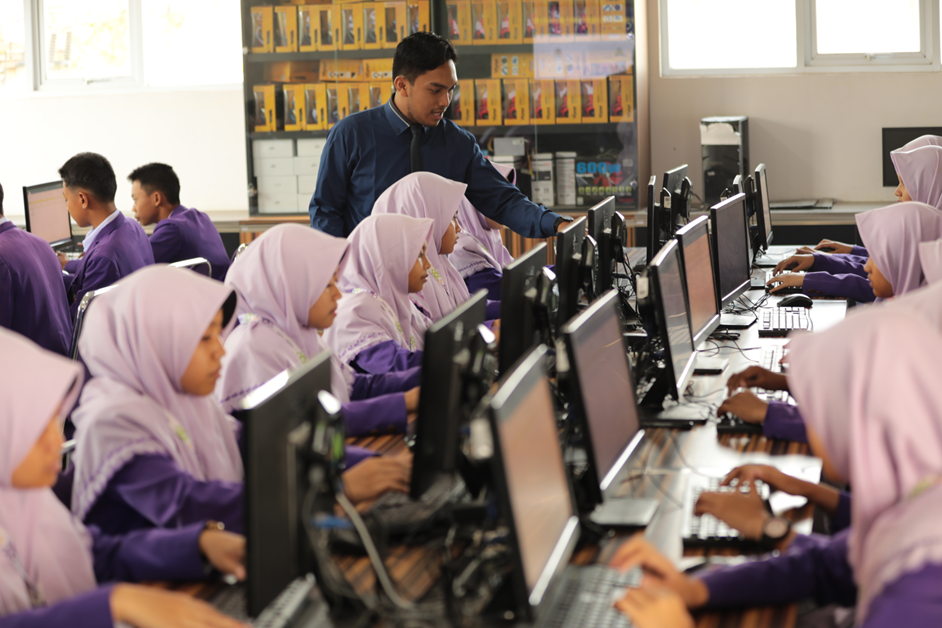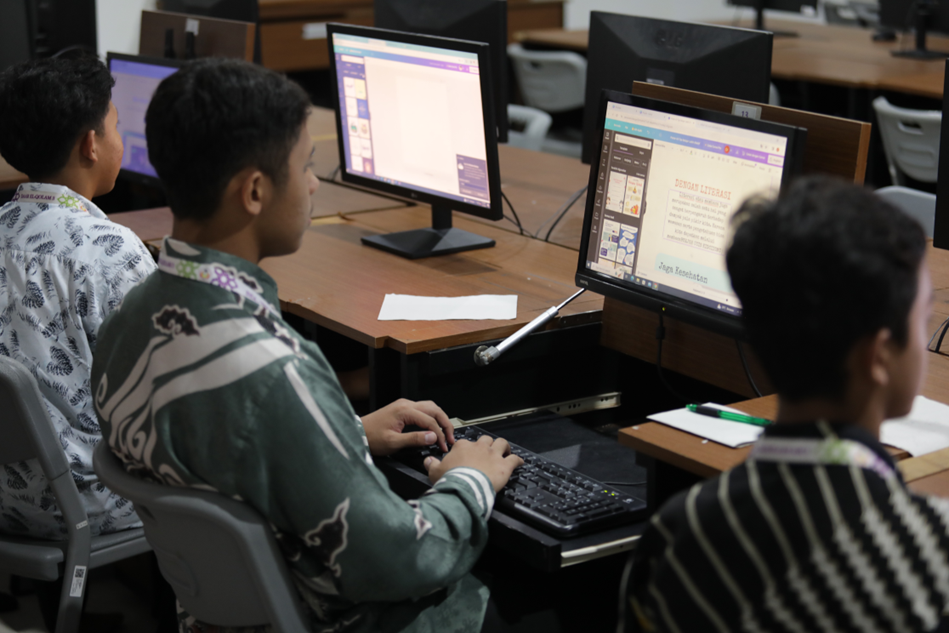
The rapid development of technology and the abundance of digital information make digital literacy a very important need in today’s society. The basic concept of digital literacy has also been put forward by various experts, such as Gilster, Eshet, Bawden, and Martin, each of whom emphasizes different aspects of digital literacy and its significance in the digital era. They expressed the same thing, namely that digital literacy has become an important instrument for people’s lives in the industrial era 4.0.
In the context of national development which relies on information and communication technology, the role of santri cannot be avoided. Santri are not only required to master religious knowledge, but also have digital literacy and strong character. Digital literacy enables students to understand, analyze, and use information responsibly in the digital world, thereby providing a positive impact.
In the Journal of Islamic Education Volume 2, literacy culture is defined simply as the ability to read and understand a particular society or nation (Maskur, 2019). The issue of literacy has developed into a very interesting topic to discuss, especially for pesantren circles who are aware that currently students are experiencing an increase in literacy culture, including digital literacy. The positive impact of advances in technology and information for pesantren circles is the ease and affordability of online access for pesantren circles to search for educational resources or Islamic literature. Apart from having a positive impact, advances in technology and information can have a negative impact on the character of students in pesantren, especially the cultural elements of hedonism and materialism.
Education is a channel for helping improve a person’s character. One of the good efforts carried out by pesantren is character education, this aims to raise prospective generations of the nation who are virtuous, caring and responsible (Marhayani, 2018).
Character education is a process of educating someone to have character values or moral values that are in accordance with the rules that apply in society. Thus, character education is an orderly sequence to change or improve and build good values in the personality of students carried out by education providers. Educational institutions hold the main key to cultivating the character and morals of students. Taught manners, manners, honesty, sense of responsibility, integrity, discipline, hard work and at the same time solidarity. Schools and pesantren are expected to become laboratories of character and morals for prospective future leaders of the Indonesian nation and state.

The Importance of Digital Literacy for Santri
Digital literacy for students is very significant in the current digital era. Digital literacy allows students to obtain broader information and knowledge, and prepares them to face future challenges. However, digital literacy can also have negative impacts if not used wisely. Therefore, it is important for students to have the awareness and ability to use internet technology wisely.
Character education is also important in forming the next generation, including santri. In this context, digital literacy can be a medium that allows for instilling character education, such as responsibility, honesty, respect, generosity, self-confidence, leadership, kindness and tolerance. However, awareness and ability of related parties, such as families, schools and government, are needed to ensure healthy use of the internet and support the formation of strong character in the next generation.
Thus, digital literacy not only provides broad access to information, but also plays an important role in forming character and positive values for students. Through understanding and wise use of internet technology, students can grow into a generation that is moral, capable and ready to face the challenges of the digital era.
Building Santri Character in the Digital Era
Digital literacy is not just skills in using software or running digital devices, but digital literacy encompasses various types of related cognitive, sociological and emotional skills that users need to be able to function appropriately in the digital environment. Currently, an important capability for students is digital literacy skills.
There are negative effects on the behavior of children and teenagers from the use of digital media and the internet based on several research conducted on Indonesian children and teenagers. This is because the use of digital media and the internet lacks supervision from parents which has an impact on the decline in the morals of Indonesian children and teenagers, because not all information that comes from digital media and the internet is suitable for consumption by children and teenagers. Therefore, pesantren have an important role as an educational forum to instill and build the character of students in the digital era. Then through education from the family as the first educator. Character formation in students aims to build the values of caring, kinship, discipline and honesty by directing good character or personality.
The existence of digital literacy activities in Islamic boarding schools has benefits in building and improving the character of students in the digital era. Namely by utilizing digital platforms such as YouTube to watch content that has been prepared by educators which will later be watched by students. Furthermore, there are interaction activities that invite students to think critically in solving a problem. The aim of holding digital literacy activities is to build students’ motivation in learning activities, increase their ability to think creatively, and increase cohesiveness between students and educators. So, later the nation’s successors will be formed who are able to compete in the current digital era with strong characters to act morally and ethically in interacting in the digital world.